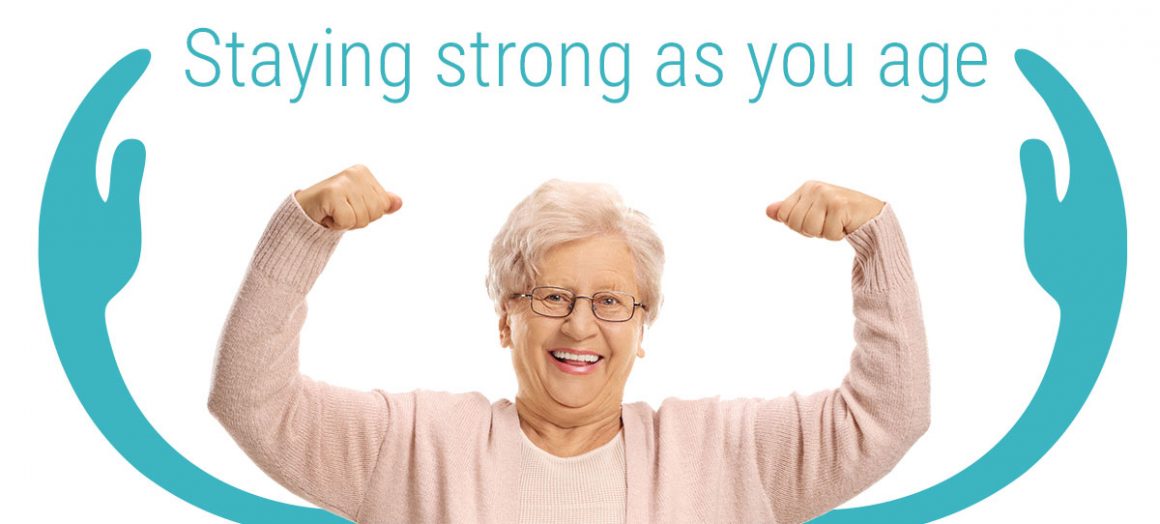Here are the NHS Guidelines for older adults aged 65 and over.
Why bother with strength training?
Resistance exercise (training for strength using weights or your body weight) as you age has been found to be very important. A 1994 study in which frail elderly people took part in a 10 week weight training program concluded that:
“resistance exercise training improves muscle strength and size in frail elderly people. These changes are accompanied by improvement in mobility and an increased level of spontaneous physical activity.”
Makes sense right? Stronger muscles means we are more capable of walking and getting around. Also, very importantly it means we are less likely to fall.
Another benefit is that you are more likely to live longer if you take part in some strength training. A US study published in 2016 concluded that
“Strength Training is significantly associated with decreased overall mortality”
Still not convinced? Well have a look at this great article in the British Journal of Sports Medicine which says:
“A recent study from Britain, showed an association between adults who participated in 2 days per week of strength training and a 20% reduction in mortality from any cause, and a 43% reduction in cancer mortality. Data from the Women’s Health Study in the US published at a similar time were very similar, with women reporting up to 145 minutes per week of strength training having a 19-27% reduced risk of mortality from any cause.”
Resistance training – an underutilised drug available in everybody’s medicine cabinet
What can you do to start strength training?
So what can older people do to strengthen their muscles? To start with the NHS website has some great advice you could start with their Beginners “Wake up! Workout” all you will need is “water, a towel and, if possible, an exercise mat.”
If you master that one they have a whole host of Intermediate level plans to help you progress.
Also some great Strength and Flex exercise podcasts
Alternatively, the internet is a great source of body weight exercises some of them tailored to the elderly.
And once you’ve started, then you must progress
Progression is really important if you want to get all the benefits of this type of exercise. Resistance training is typically made up of “Sets” of “Repetitions” (or “Reps” as they are known in the trade). So for example you may do 3 sets of standing from your chair with 8 reps in each set. To progress you can add more reps or alternatively increase the weight by holding something whilst you do it. Progression is really key, this forces the muscle to improve and makes you stronger.
A cheap and easy way to add more resistance is using resistance bands. These can be bought quite cheaply from places like Amazon. They come in different types Light, Medium and Heavy. Try starting with light and medium.
The British Heart Foundation have a great program of exercises with resistance bands with videos over on their website.
Starting in strength training at an old age
If you are starting out for the first time you may be concerned or want some help understanding what to do and creating a program you can follow.
There are lots of gyms in most areas and in those gyms you will find personal trainers. A great way to get started is to find a personal trainer that you can talk to and ask if they have experience with training older people. They will help you create a safe program, tailored to your age and fitness level and also encourage you to progress.
Here’s what you can expect from your first visit or consultation at a gym.
Doing something is a great place to start!
We know it can seem intimidating starting something new, particularly as you get older but you really will feel the benefits and starting at home with the NHS resources is a great idea. We are all living longer and by adding a bit of resistance training into our weekly routine we can make ourselves more mobile in our later years.
![]()


